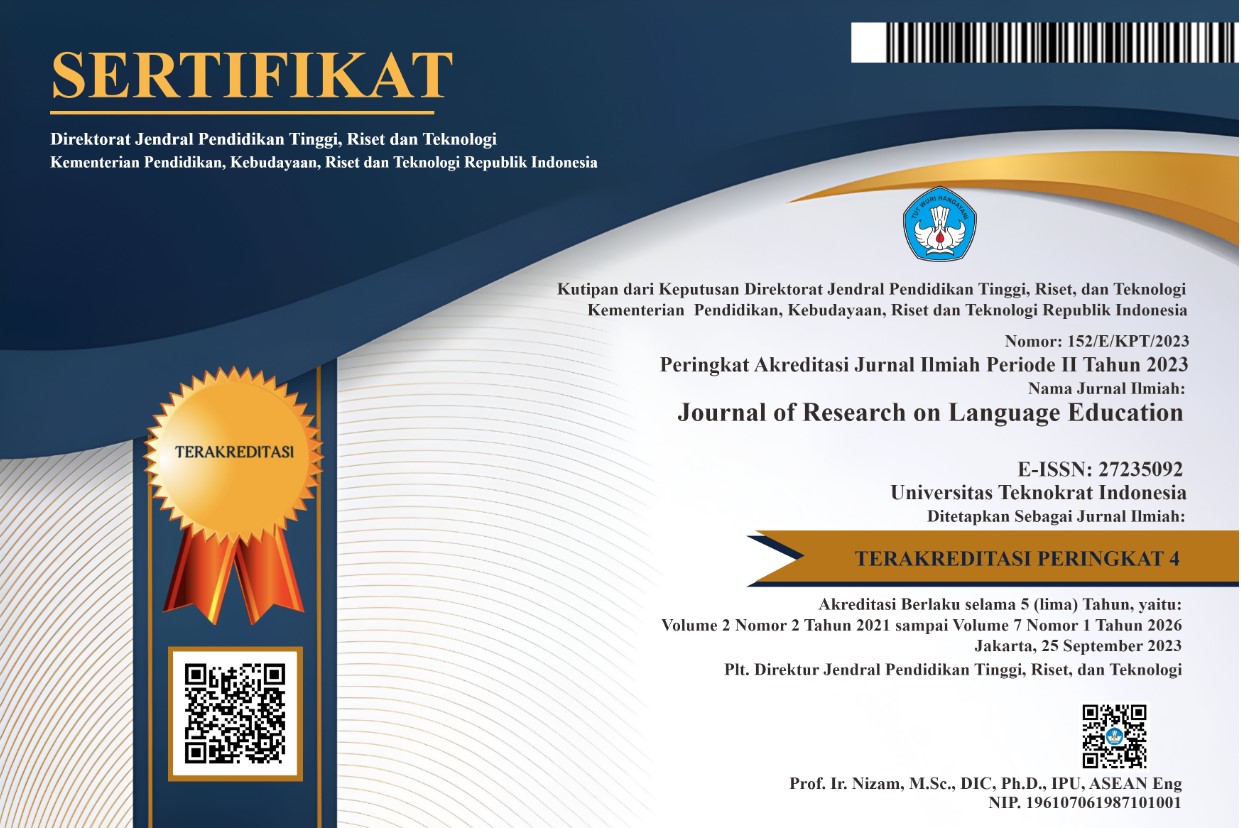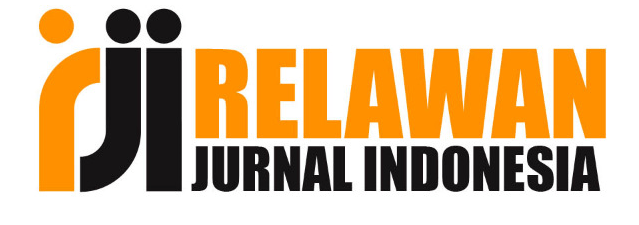TEACHING IN PANDEMIC: TEACHERS’ EXPERIENCES DURING CORONAVIRUS OUTBREAK
Abstract
In 2020, novel coronavirus or Covid-19 spread rapidly via international air travel from China to many cities across the world, and it is resulting in over a million cases of infections and deaths. In Indonesia, as the virus invaded the community so did fear. This paper used a case study to investigate teachers’ experiences of the role played by digital technology. The interview and questionnaire results showed that teachers were faced with the challenge of using digital technology to provide an education that would reach beyond school walls into the homes and computers of Indonesian students. Teachers had to re-think their teaching strategies and provide their students with new and different opportunities to work through curriculum requirements. Covid-19 provided a catalyst for the intense use of ICT in ways that had not been anticipated or prepared for. The plunge into ICT was a voyage of exciting discovery for some and frustration for others. Either way, it had an impact on subsequent perceptions of the potential and shortcomings of ICT in education in Indonesia.
Keywords
Full Text:
PDFReferences
Ahmad, A. N. The Effect Of Using Whatsapp Messenger On Students’speaking Achievement At The Second Grade Students Of Madrasah Aliyah Negeri (MAN) 1 Kendari. Journal of Teaching of English, 4(1), 78-88.
Apple, M. W., & Bromley, H. (Eds.). (1998). Education/technology/power: Educational computing as a social practice. Suny Press.
Aminatun, D. (2019). ICT in University: How Lecturers Embrace Technology for Teaching. JURNAL SMART, 5(2), 71-80.
Bhat, S., Raju, R., Bikramjit, A., & D'Souza, R. (2018). Leveraging E-learning through Google classroom: A usability study. Journal of Engineering Education Transformations, 31(3), 129-135.
Daniel, J. (2020). Education and the COVID-19 pandemic. Prospects, 49(1), 91-96.
Fox, R. (2004, December). SARS epidemic: Teachers’ experiences using ICTs. In Beyond the comfort zone: Proceedings of the 21st ASCILITE Conference (pp. 319-327). Australasian Society for Computers in Learning in Tertiary Education.
Gašević, D., Kovanović, V., Joksimović, S., & Siemens, G. (2014). Where is research on massive open online courses headed? Data analysis of the MOOC Research Initiative. International Review of Research in Open and Distributed Learning, 15(5), 134-176.
Handayani, E. T., & Aminatun, D. (2020). Students'point Of View On The Use Of Whatsapp Group To Elevate Writing Ability. Journal of English Language Teaching and Learning, 1(2), 31-37.
Howard, P., & Howard, J. (2012). Pandemic and pedagogy: Elementary school teachers’ experience of H1N1 Influenza in the classroom. Phenomenology & Practice, 6(1).
Loranc-Paszylk, B. (2015). Videoconferencing is a tool for developing speaking skills. In Issues in teaching, learning, and testing speaking in a second language (pp. 189-203). Springer, Berlin, Heidelberg.
Mualim, M., Ma’rufah, D. W., & Sartika, E. (2019, December). The Strengths and Pitfalls of Google Classroom Application to Gen-Z Students’ Learning Hybridity. In Proceeding of International Conference on Islamic Education (ICIED) (Vol. 4, No. 1, pp. 297-301).
Muliyah, P., Aminatun, D., Nasution, S. S., Hastomo, T., & Sitepu, S. S. W. (2020). Exploring Learners’autonomy In Online Language-Learning In STAI Sufyan Tsauri Majenang. Getsempena English Education Journal, 7(2), 382-394.
Saleh, S. T. (2019). CHAT AND LEARN: Effectiveness Of Using Whatsapp As A Pedagogical Tool To Enhance EFL Learners’reading And Writing Skills. International Journal of English Language and Literature Studies, 8(2), 61-68.
Shaharanee, I. N. M., Jamil, J. M., & Rodzi, S. S. M. (2016, August). Google classroom as a tool for active learning. In AIP Conference Proceedings (Vol. 1761, No. 1, p. 020069). AIP Publishing LLC.
Sukmawati, S., & Nensia, N. (2019). The Role of Google Classroom in ELT. International Journal for Educational and Vocational Studies, 1(2), 142-145.
Valentine, D. (2002). Distance learning: Promises, problems, and possibilities. Online journal of distance learning administration, 5(3).
Wenden, A. L. (1997). Designing learner training: The curricular questions. Anthology Series-Seameo Regional Language Centre, 238-262.
Zhussupbekov, A. (2016). MOOCS And Their Implications For Traditional Higher Education Institutions. Use; Eurasian Higher Education Leaders’forum 2016.
DOI: https://doi.org/10.33365/jorle.v3i1.1894
Refbacks
- There are currently no refbacks.

This work is licensed under a Creative Commons Attribution-NonCommercial-ShareAlike 4.0 International License.

Articles published in Journal of Research on Language Education is licensed
under a Creative Commons Attribution-ShareAlike 4.0 International License.
English Education Study Program, Faculty of Arts and Education.
Universitas Teknokrat Indonesia
Zainal Abidin Pagaralam 9-11 Bandar Lampung, Indonesia
All rights reserved.








